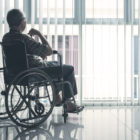Fines & Sanctions
State Fines Three Doctors, Disciplines Two Others
|
The state Medical Examining Board disciplined two physicians with $5,000 fines for failing to adequately inform and monitor patients while prescribing opioids or anti-anxiety medications. Dr. Michael Kelly, of Salisbury, was issued a $5,000 fine and a year of probation Tuesday for failing to consistently adhere to a safe opioid prescribing system that included checking the medical history of patients and documenting justification for chronic opioid treatment, according to a consent order, approved today (Tuesday). A state Department of Public Health (DPH) consultant looking into a referral made by the state Department of Consumer Protection, Drug Control Division, found that Kelly also failed to monitor chronic opioid patients and didn’t check the state’s Prescription Monitoring Program every 90 days for some patients. As a result of the investigation, Kelley, a primary care physician with a private practice in Salisbury, agreed to pay the fine and have 20% of his patients’ records reviewed during a one-year period of probation. Kelly voluntarily surrendered his registration to prescribe controlled substances and would need to be monitored for a year if he sought the registration back, DPH documents said.




